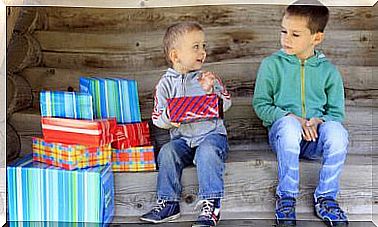When The Family Does Not Help In Difficult Times

When the family does not help in difficult times, there is only one way out, to accept their decision. Now, something that usually happens is that in addition to not being supportive, some of those close members tend to intensify the suffering even more by making judgments and criticisms. In this way, our psychological resources are even more depleted when facing these personal difficulties.
Leon Toltstoi said at the beginning of Anna Karenina that “all happy families resemble each other, but each unhappy family is unhappy in its own way. ” No doubt. That micro-universe called family that is given to us by force when we come into the world, always presents its own peculiarities. So much so that there are hardly ever two alike and, on occasions, they even act unnatural.
In other words, far from promoting safety and happiness and nurturing their loved ones in value, they cut potentials and cause injuries. Brands that, in addition, we can drag throughout our entire life cycle. Thus, if there is something that as adults we know well, it is that the very fact of maturing requires cutting that umbilical cord of the family unit in order to fulfill ourselves.
We do it to exercise our freedom and create a life based on our own decisions, on paths taken alone and with decision. However, sometimes it happens: we fall and fail. There are times when adversity comes to us in some of its forms and, then, we always appreciate the understanding and closeness of our own.
However, there are families that, instead of supporting, can sink us even more. They do it with their discouragement, with the projection of guilt, with the underestimation and even with the emotional coldness.

When family does not help: emotional abandonment
It is often said that people are hostages of our families. What we experience each day with these members is part of our emotional and psychological baggage, whether for better or for worse. Sometimes not even having a place of your own limits this influence. Those fathers, those mothers, brothers or uncles continue, in many cases, to have a clear ancestry over us.
In this way, it is common for many people to go to psychological therapy because they carry unresolved conflicts, as well as the wounds of dysfunctional families in which reproaches, violations, criticisms and disagreements are common. Salvador Minuchin, a renowned structural therapist, said that the main responsibilities of a family are tolerance, commitment and support.
When these dimensions fail, everything collapses. When the family does not help, does not show understanding or empathy towards any of its members, that micro-universe is broken.
In moments of difficulty more than help, we need to feel accompanied
When faced with a difficulty, we do not always need those around us to solve our problems. Adversity is not resolved in all cases with money or material resources. So much so that the common denominator that prevails is gratitude for the company.
An example, in a study carried out at the University of Manoa, in Hawaii, carried out by the psychologist Thomas Wills, something interesting was shown. The type of support that brings the most psychological benefits to people is the one that is not seen. That is, we value the love of our own, we are comforted to feel that we are valued, understood and protected.
It is the sincere attachment of ours that generates the most well-being. Therefore, when the family does not help and, in addition, turns its back on us, leaving us in that affective and understanding emptiness, the pain is very intense.

Families who believe they help, when in fact they do the opposite
Sometimes, another type of equally harmful situation can occur. Just as there are families who can abandon their loved ones, denying them support and closeness, there are those who do take the step and choose to help, but in reality they do it wrong. They are the ones who deploy a series of actions and resources that tend to intensify the suffering even more.
One thing we need to know is that helping is actually an art that not everyone knows how to do, and sometimes it is better to do nothing than to do it wrongly. Being effective in knowing what to do, what to say and what not to say requires skills that not everyone has. And, sometimes, within the family there may be situations where one ends up more sunk by parents or siblings who believe they are doing the best.
So in times of need, who do we ask for help?
In our culture, the family is little more than an institution, an almost sacred icon that transcends everything. However, it is in this often overrated scenario that most conflicts, disagreements, disappointments and traumas originate. As Tolstoy said, the world is divided into happy and unhappy families and some of us are originally from the former and others from the latter.
What can we do then when adversity hits us? What to do if the family does not help? Somehow, experience already tells us who is and who is not. Each one brings their own journey and you have to be smart when requesting support. Sometimes we find that valuable support in other people with whom we do not share a genetic code.
Also, remember a detail. It will always be better not to have the help of someone than to have a clearly pathological closeness. In times of need and difficulty, we must continue to maintain an adequate clarity of vision to know on which shoulder it is better to lean. Let’s think about it.









